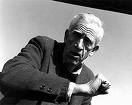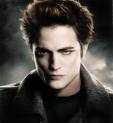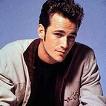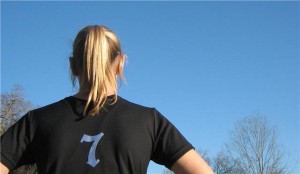The Imaginary J.D. Salinger
 “‘Writing is different,’ Salinger insists. ‘Other people get into occupations by accident or design; but writers are born. We have to write. I have to write. I could work at selling motels, or slopping hogs, for fifty years, but if someone asked my occupation, I’d say writer, even if I’d never sold a word. Writers write. Other people talk‘” (Kinsella 109).
I’m reading Shoeless Joe by W.P. Kinsella right now. Being a huge fan of the movie Field of Dreams, it was only a matter of time before I picked up the original text.
 I didn’t know that the fictional, reclusive writer Terence Mann (played by James Earl Jones) was originally written as none other than J.D. Salinger. I’d always simply assumed that he was based on the writer, as they had a number of obvious similarities. Both had books that were simultaneously banned and hailed as classics; both were seen as literary heroes; and both were mysteriously withdrawn in later life. I don’t even think that the film tries to hide the parallels between the two writers, aside from changing the name and the race. Â
I didn’t know that the fictional, reclusive writer Terence Mann (played by James Earl Jones) was originally written as none other than J.D. Salinger. I’d always simply assumed that he was based on the writer, as they had a number of obvious similarities. Both had books that were simultaneously banned and hailed as classics; both were seen as literary heroes; and both were mysteriously withdrawn in later life. I don’t even think that the film tries to hide the parallels between the two writers, aside from changing the name and the race.  
The jury is still out on how I feel about the book on the whole. Sometimes I feel like I’m trudging through an excess of heavy-handed figurative language (“Shoeless Joe Jackson glides over the plush velvet grass, silent as a jungle cat” [17]; ” “a moon bright as butter” [265]; “the strangle of grass, bent by evening breezes, peers inside” [135]). Other times I’m moved to tears by the nostalgic, magical quality of the writing.Â
Either way, the segments featuring Kinsella’s imagined version of J.D. Salinger are fascinating. It’s like Kinsella the writer is giving himself–and his readers–an opportunity to answer all of the questions that we have about a legendary, puzzling figure in American literary history. Why did Salinger retreat into solitude? What happened to his prolific writing career? What was he LIKE? Especially given Salinger’s recent death, it’s a timely piece of reading. Fictional, of course, and pure fancy, but engaging nonetheless. I feel like I’m cheating, somehow; like I’m kissing a Paul Newman impersonator or dancing with a mannequin dressed as Patrick Swayze.
Ray Kinsella grills Salinger, asking him all of those burning questions we want answered. As they travel the country together on a mystical journey, Salinger becomes increasingly likable and down-to-earth. A man I imagine to have been withdrawn and curmudgeonly is portrayed as easy-going and gentle. At one point, Ray asks why “Jerry” never talks about writing. The writer replies that talking about writing is different from discussing any other occupation (quoted above).
Now, in the interest of full disclosure, I’ll admit that I can talk about just about anything…including my writing. And I’m not sure it’s fair to say that other people aren’t born into what they do, because I do think that there are born mechanics and teachers and CEOs. But the point about writers being writers regardless of publication…Now that I agree with.
About two years ago I visited my best friend, Sarah, in New York. My last night there, she took me to a party where I met a guy who had recently graduated with his MFA in creative writing. He was working on a novel.Â
When I asked him what he did, he replied, “I’m a writer.” Just like that.
When he asked me what I did, I answered with the same.  “I’m a writer,” I told him simply, like I’d said it a million times before. It slipped out before I could even contemplate its truth.
Maybe it was the fact that I’d had a few too many drinks that night, or maybe I was just repeating his words like a lame parrot. But when I told Sarah, she asked me, “Don’t you think that means that writing is your true calling?”Â
So the point above is well-taken, and it made me sigh with relief when I read it. Writers aren’t defined by publication, they’re established at birth. Like me.




